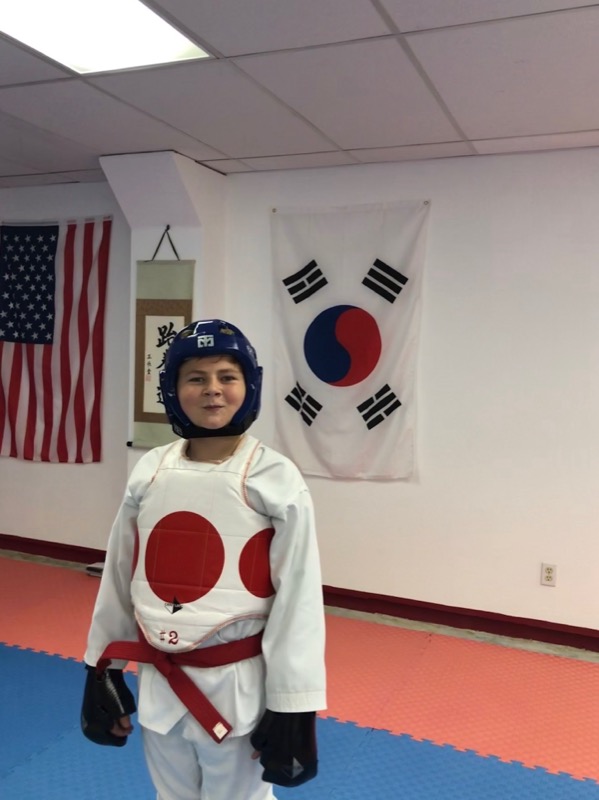
In today’s fast-paced and constantly changing world, raising resilient children is a top priority for many parents. Resilience—the ability to bounce back from setbacks, adapt to change, and persist in the face of adversity—is a crucial life skill that significantly impacts a child’s emotional and psychological development. One powerful way to foster resilience is through martial arts, particularly Taekwondo. This traditional Korean martial art enhances physical health while building emotional fortitude and mental toughness. Let’s explore how Taekwondo supports resilience development and why it’s a valuable activity for children.
Understanding Resilience
Resilience is the ability to cope with challenges, learn from adversity, and emerge stronger. It involves:
- Emotional Regulation: Managing stress and emotions effectively.
- Problem-Solving Skills: Addressing challenges with creativity and critical thinking.
- Growth Mindset: Viewing setbacks as opportunities for learning and growth.
Resilience doesn’t mean immunity to difficulties; instead, it’s about navigating them with confidence and determination. Fortunately, resilience can be nurtured and developed through intentional practices like Taekwondo.
The Role of Taekwondo in Building Resilience
Taekwondo, meaning “the way of the foot and the hand,” is a discipline that emphasizes self-control, respect, and perseverance. These principles are deeply ingrained in every aspect of Taekwondo training, equipping children with essential tools for emotional resilience.
1. Building Self-Discipline
One of the core tenets of Taekwondo is self-discipline. Through structured routines, respect for instructors, and adherence to etiquette, children learn to:
- Follow instructions
- Set personal goals
- Commit to consistent practice
This discipline fosters better focus and control over their actions and emotions, which are key components of resilience.
2. Enhancing Self-Esteem and Confidence
Taekwondo provides children with a tangible sense of achievement:
- Mastering Techniques: Successfully learning kicks, punches, and forms boosts confidence.
- Advancing Through Belts: Progressing in rank reinforces the idea that effort leads to success.
Confident children are more likely to approach challenges with a positive mindset and believe in their ability to overcome obstacles.
3. Teaching Perseverance
Taekwondo is not mastered overnight. It requires:
- Consistent Effort: Regular practice to refine techniques.
- Overcoming Challenges: Facing and overcoming setbacks, such as perfecting a difficult move.
Through these experiences, children learn the value of persistence and determination, key traits of resilient individuals.
4. Cultivating Focus and Mindfulness
Taekwondo emphasizes mental clarity and focus. During training, children must:
- Concentrate on their movements
- Pay attention to their surroundings
- Stay present in the moment
This practice of mindfulness helps children manage stress, remain calm under pressure, and approach challenges with a clear mind.
5. Instilling a Sense of Responsibility
In Taekwondo, children are taught to take responsibility for their actions and progress. This includes:
- Caring for their uniforms and equipment
- Showing up prepared for class
- Putting in the effort to improve
Understanding that their success depends on their own attitude and actions fosters accountability and independence.
6. Promoting Emotional Regulation
The structured environment of Taekwondo helps children learn to manage their emotions. Through sparring and practice, they:
- Channel aggression constructively
- Develop patience and self-control
- Learn to respond thoughtfully rather than reacting impulsively
Emotional regulation is essential for resilience, enabling children to navigate difficult situations calmly and effectively.
The Social Benefits of Taekwondo
In addition to personal growth, Taekwondo provides significant social benefits that contribute to resilience.
1. Fostering a Sense of Community
Taekwondo classes create a supportive community where children are encouraged to:
- Respect one another
- Celebrate each other’s progress
- Work together toward shared goals
Feeling connected and supported helps children develop a strong sense of belonging.
2. Encouraging Teamwork and Cooperation
While Taekwondo is often seen as an individual pursuit, much of the training involves working with others:
- Partner drills to refine techniques
- Sparring sessions to practice real-world application
- Team activities and demonstrations
These experiences teach children the value of cooperation and mutual support.
3. Promoting Respectful Interactions
Respect is a cornerstone of Taekwondo culture. Children learn to:
- Show courtesy to instructors and peers
- Treat opponents with kindness, even in competition
- Value their own efforts and achievements
This respect fosters healthy relationships and positive social interactions both inside and outside the Dojang (training hall).
The Long-Term Impact of Taekwondo on Resilience
The skills and values children gain through Taekwondo have lasting effects, helping them navigate life’s challenges with confidence and determination. These include:
- Improved Problem-Solving: The ability to approach difficulties methodically and creatively.
- Greater Emotional Strength: The capacity to manage stress and maintain a positive outlook.
- Lifelong Confidence: A belief in their ability to achieve goals through effort and perseverance.
Conclusion
In today’s complex and ever-changing world, fostering resilience in children is more important than ever. Taekwondo provides a unique combination of physical activity, mental discipline, and emotional growth, equipping children with the tools they need to thrive. By instilling values like self-discipline, perseverance, and respect, Taekwondo helps children build a strong foundation for lifelong resilience.
For parents looking to support their child’s development, enrolling them in a Taekwondo program can be a transformative step. Through consistent practice and a supportive community, your child can grow into a confident, adaptable, and emotionally strong individual—ready to face life’s challenges with courage and determination.
Written by AI & Reviewed by Clinical Psychologist and Head Coach: Yoendry Torres, Psy.D.
Disclaimer: Please note that some blog posts may contain affiliate links and TKD Wellness will earn a commission if you purchase through those links at no additional cost to you. We use all of the products listed and recommend them because they are companies or products that I have found helpful and trustworthy. Our website is supported by our users.